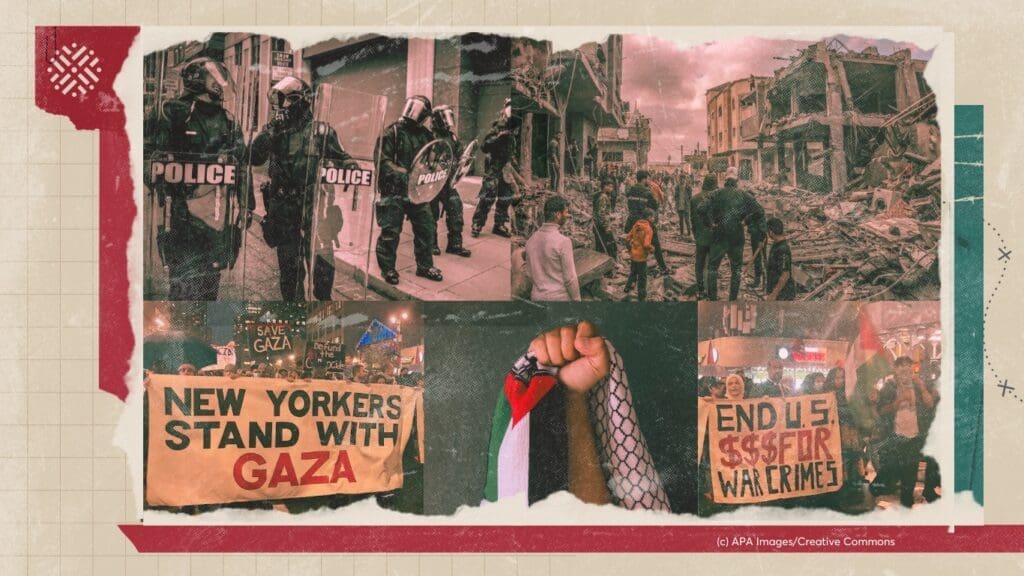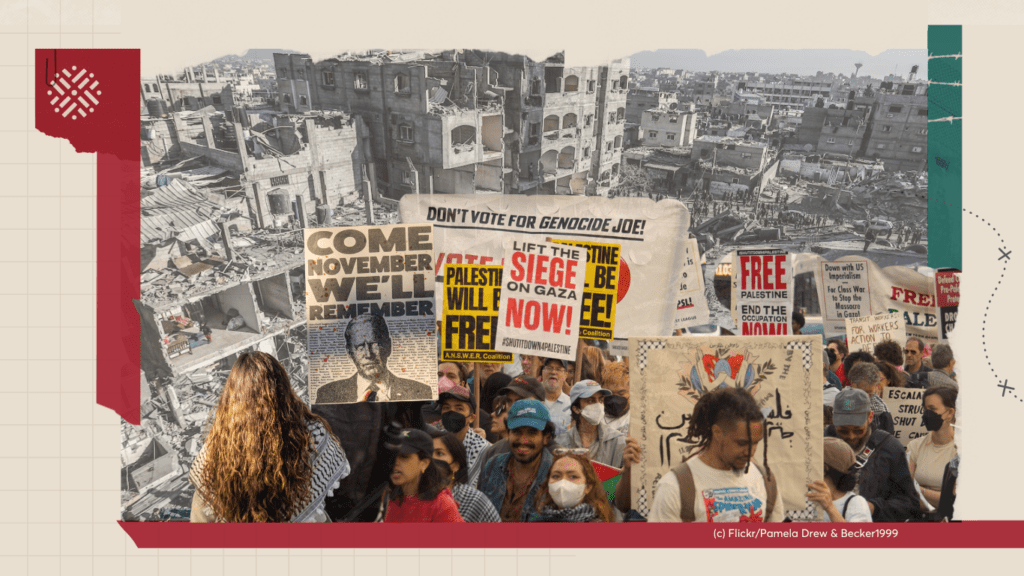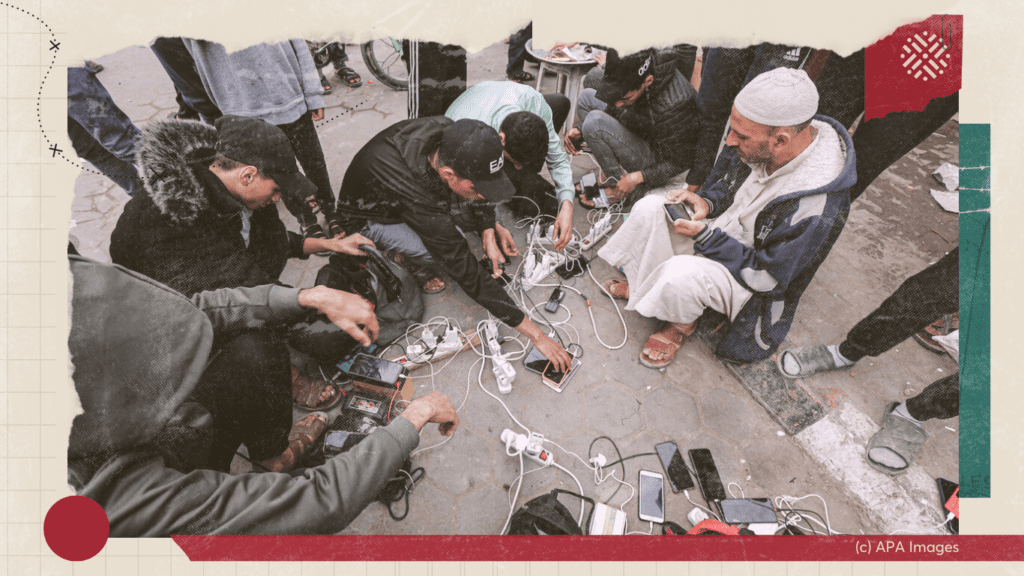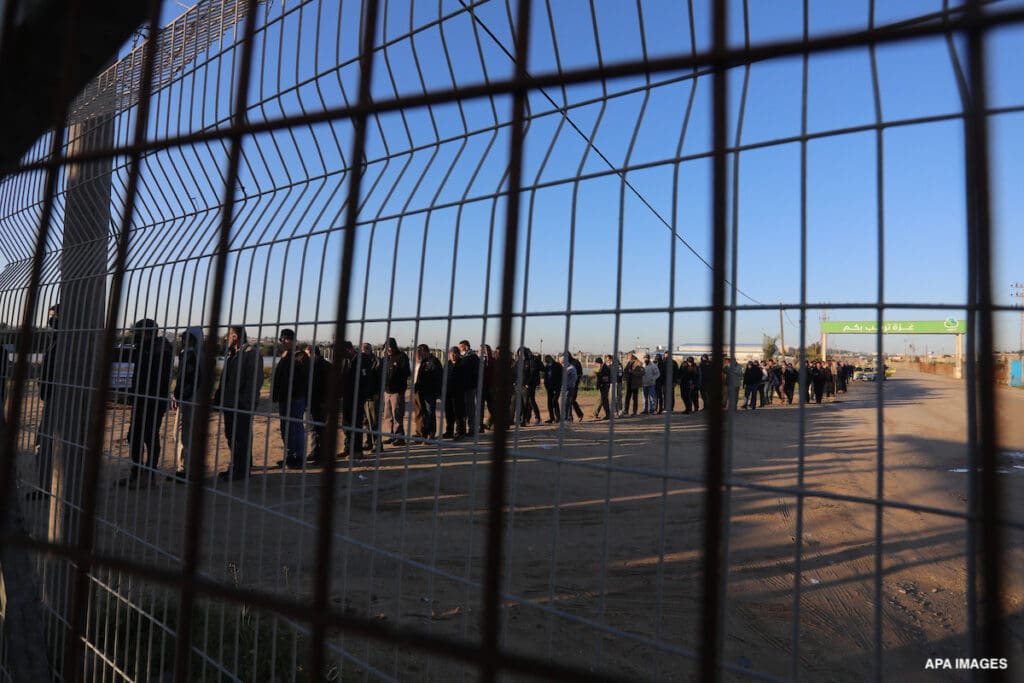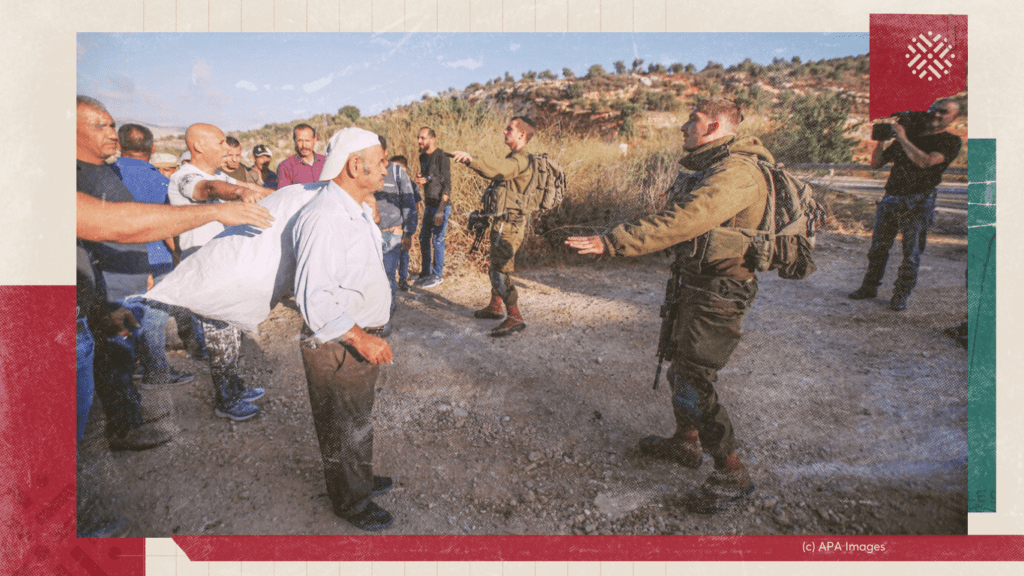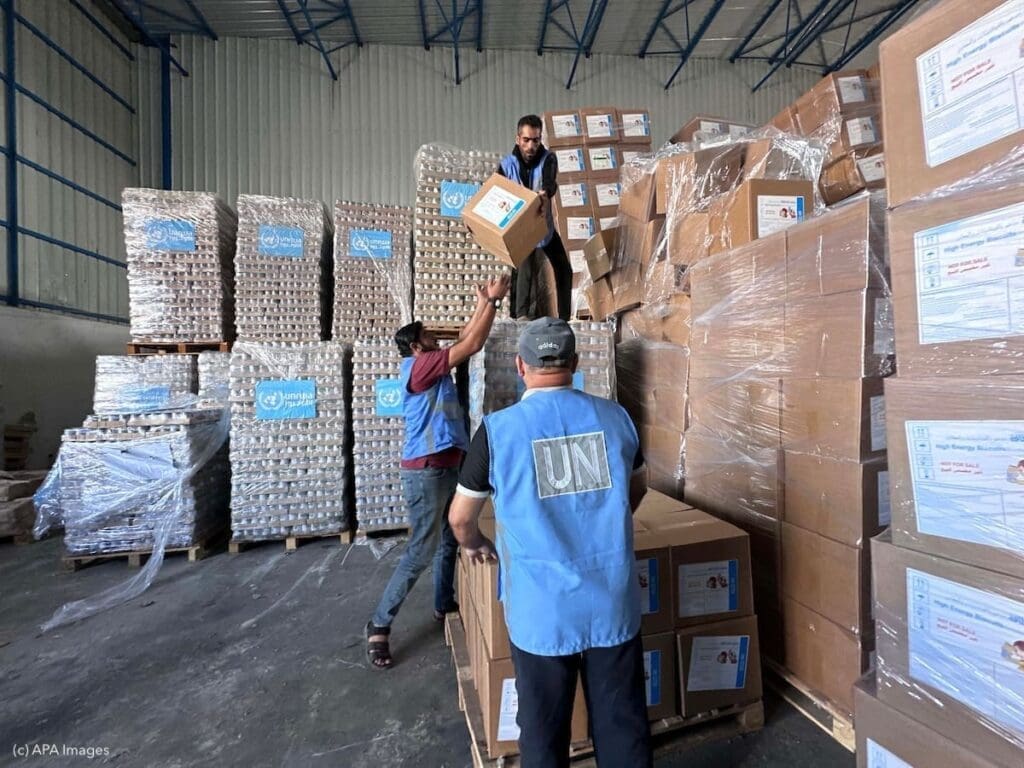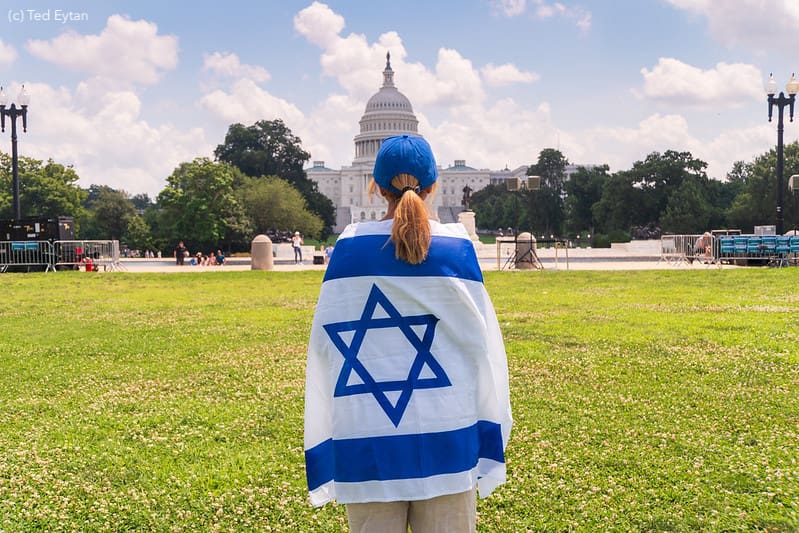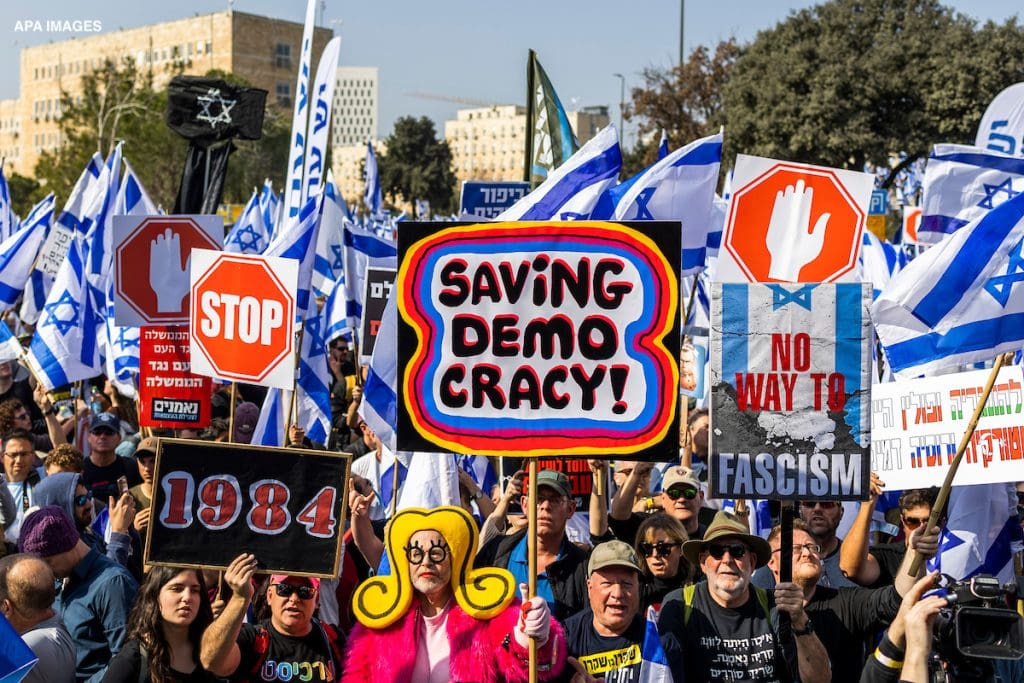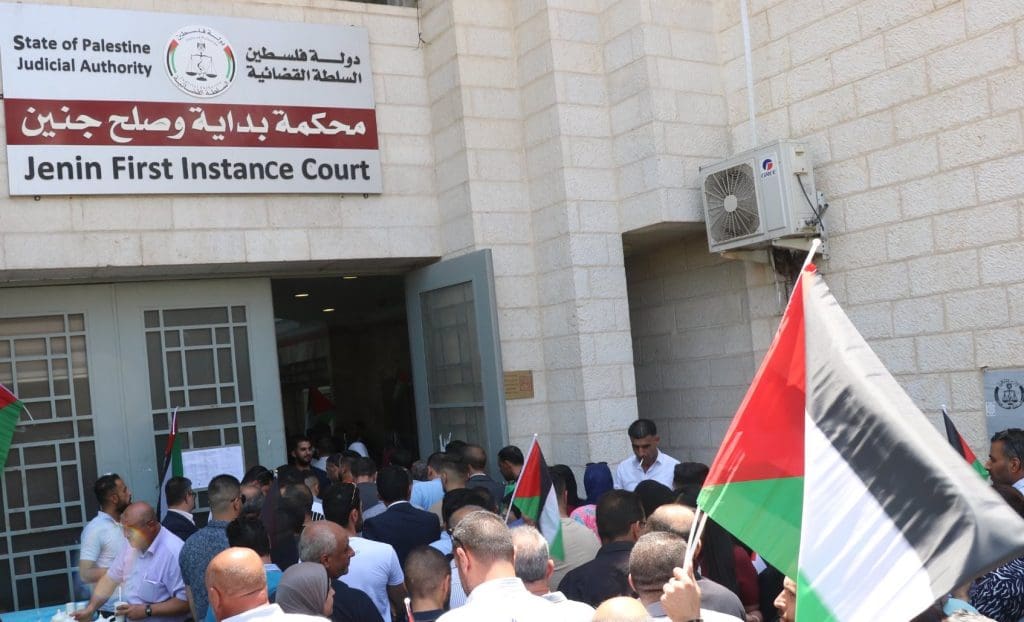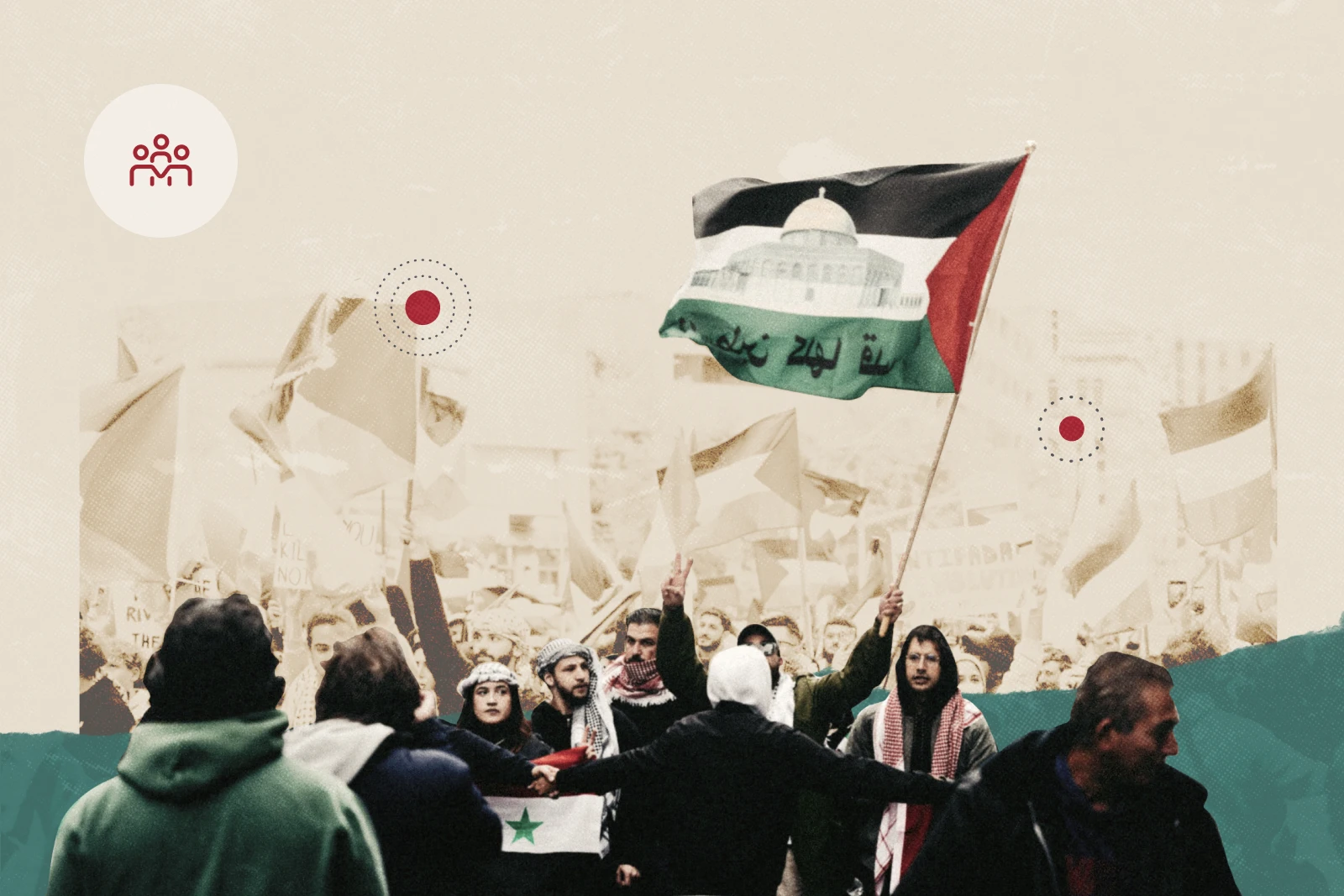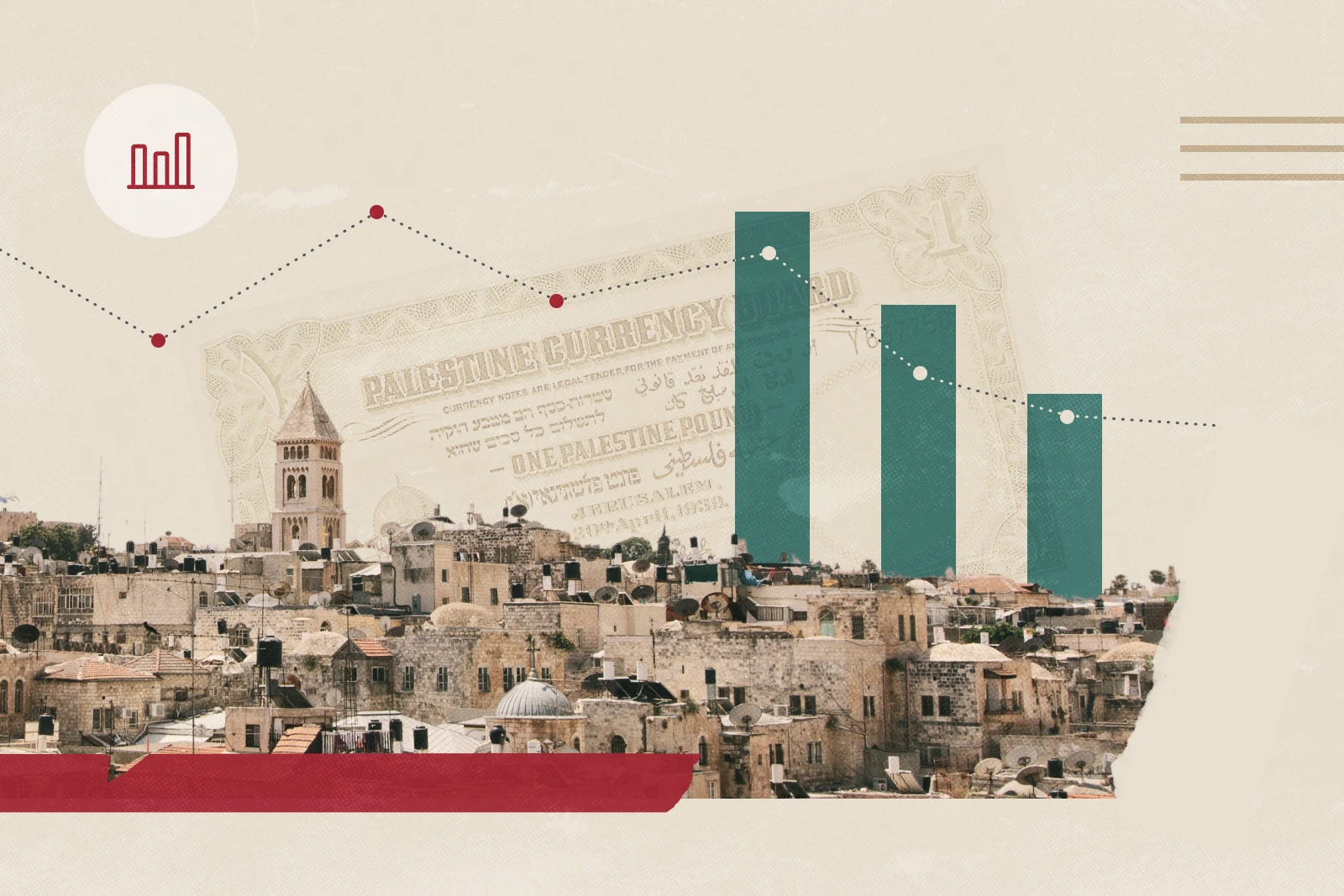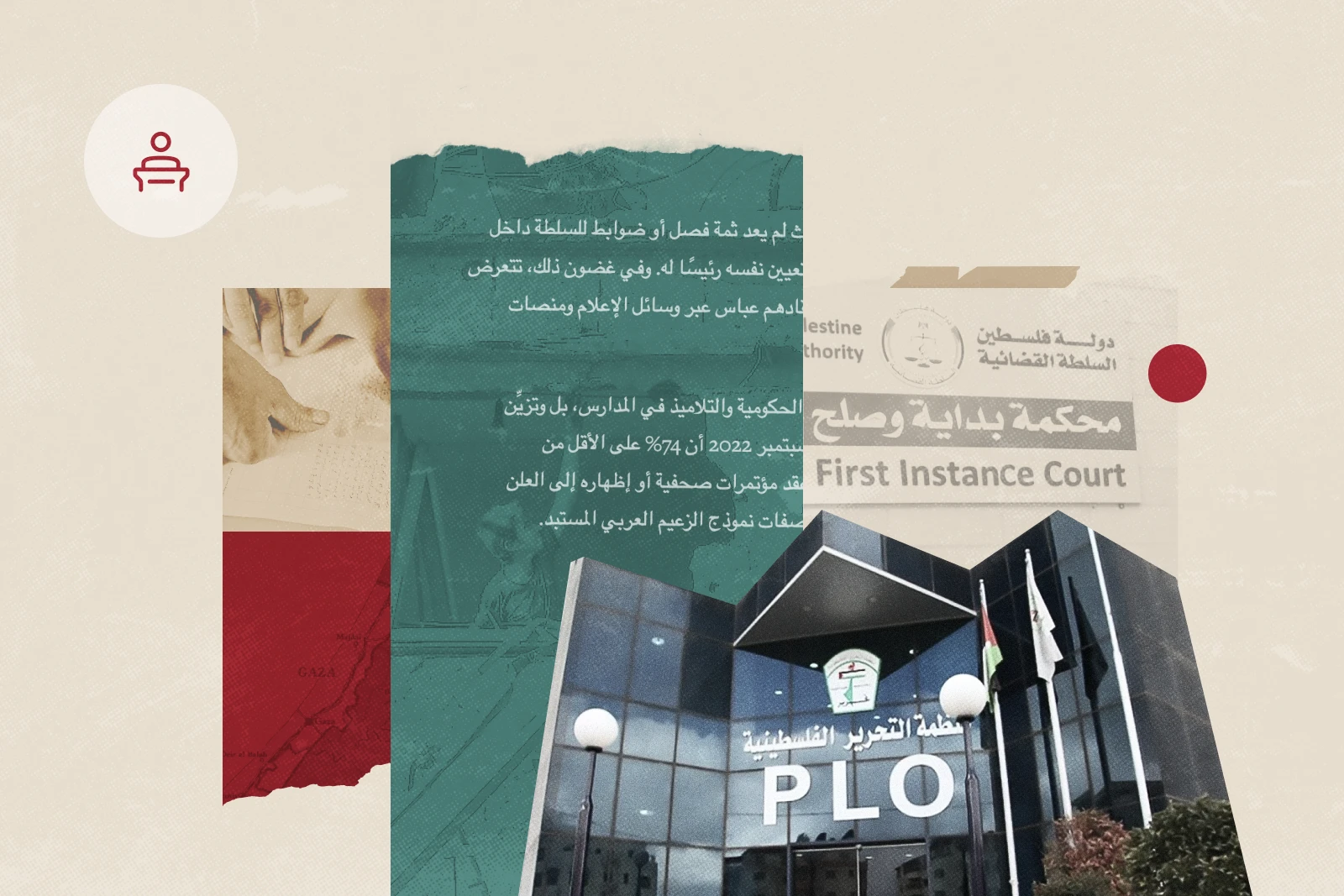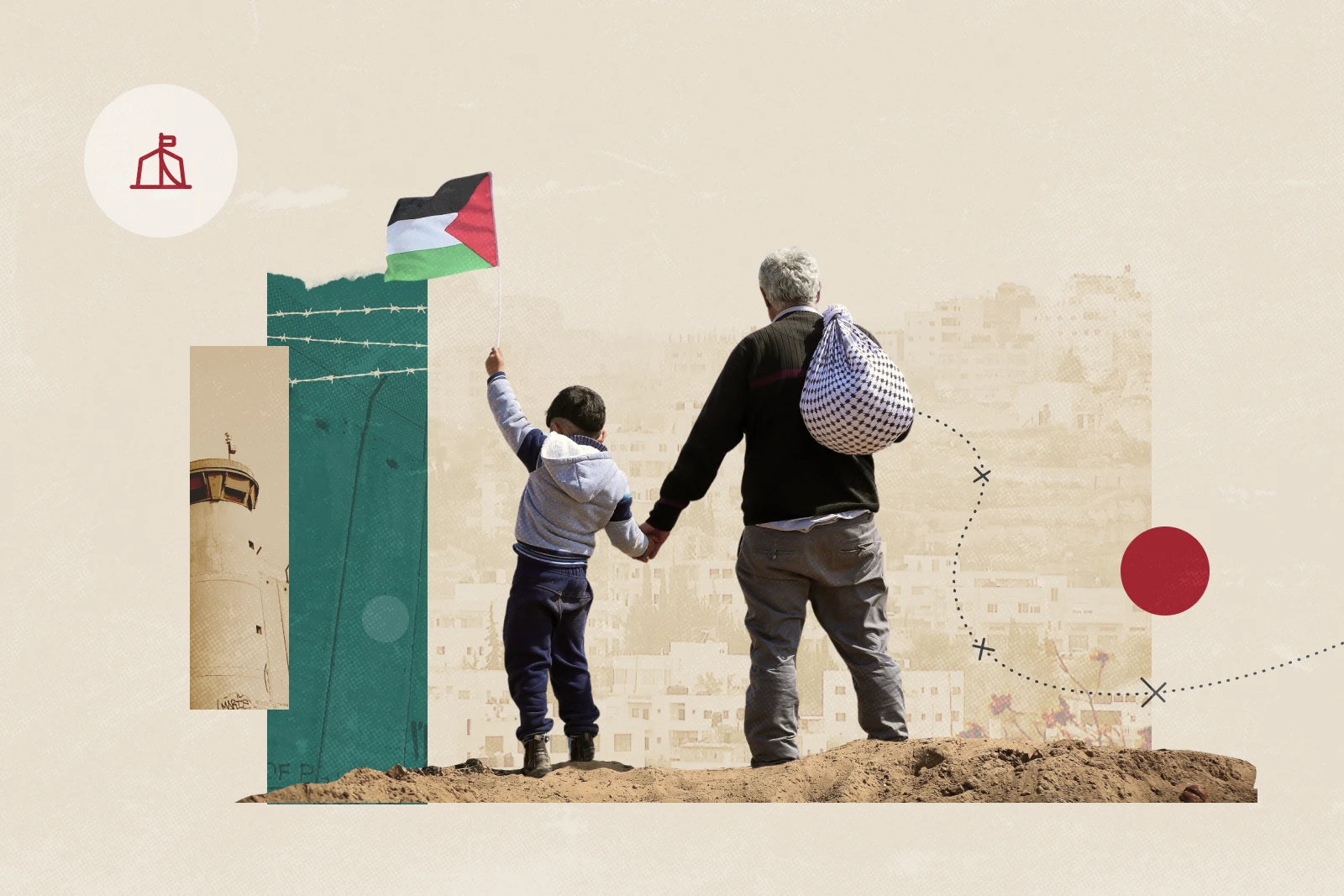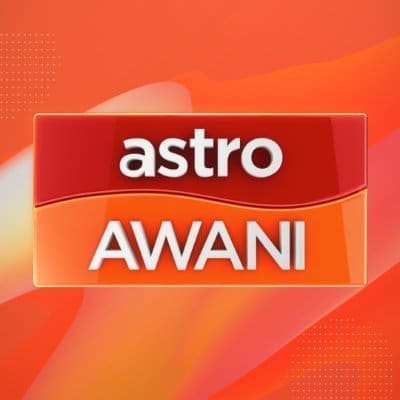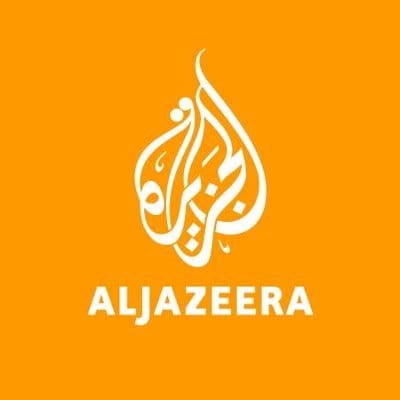typePolicy Briefs
One year after Hamas’s Al-Aqsa Flood operation, the Heritage Foundation launched Project Esther—an initiative to suppress Palestinian solidarity under the guise of combating antisemitism. The project relies on censorship, lawfare, and intimidation to dismantle advocacy for Palestinian rights as part of a broader bipartisan crackdown that has onlyintensified under Donald Trump’s administration.
This policy brief situates Project Esther within the escalating assault on free speech and dissent, revealing how the repression of Palestine advocacy serves as a litmus test for US democracy. It also outlines strategies to resist this authoritarian turn and ensure that the fight for Palestinian liberation remains central to the broader struggle for justice and equality.

Tariq Kenney-Shawa· Apr 15, 2025
This policy brief revisits polling and election data to demonstrate the effect of the Democratic Party’s unflinching support for the Israeli regime on demobilizing voters in a presidential race taking place in the midst of a genocide—highlighting the need for a shift in US foreign policy. It emphasizes the importance of Palestine solidarity advocacy in countering the alarming global phenomenon of democratic backsliding, especially in the US. It calls for honest data collection and reporting at a time when critical action against authoritarian US policies is likely to face increasing repression under the current administration of US President Donald Trump—with anti-Palestinian repression serving as a template.

Halah Ahmad· Feb 25, 2025
At the time of publication, the implementation of the first phase of the ceasefire agreement between Hamas and the Israeli government was underway. The deal comes after Palestinians in Gaza endured a devastating 15-month-long genocidal war that claimed tens of thousands of lives and injured many more. Israel’s intense shelling of Gaza has had a catastrophic effect on its infrastructure, including the telecommunications network, forcing the population into a near-total internet and cellular blackout.
This policy brief examines the devastating impact of the Israeli regime’s actions on Gaza’s telecommunications infrastructure and internet access. It situates Israel's attack on the communications sector within the broader framework of neo-colonialism. It explains how Israel’s stranglehold on the Palestinian digital infrastructure strengthens its political and economic hegemony, which is one of the most important features of the Zionist settler colonial project. It also highlights the resilience of Palestinians resisting enforced communication blackouts. It finally offers actionable recommendations for the international community to support enhanced digital access in Gaza and break its technological dependence on Israel.

Ali Abdel-Wahab· Feb 4, 2025
Since the start of the genocide in Gaza, Palestinian laborers working in the Israeli market have become a top target for Israel's brutal Civil and Economic Affairs Cabinet and the Knesset's Foreign Affairs and Defense Committee. During this time, the Zionist regime terminated over 140,000 work permits, detained thousands of Palestinian workers, and began formal discussions with various Asian governments to recruit foreign laborers as replacements.
In this policy brief, Ihab Maharmeh details a recurring pattern in which Israel summons, exploits, expels, or replaces the Palestinian workforce based on its needs. This calculated approach, Maharmeh argues, is designed to systematically dismantle Palestinian political, economic, and social structures, ultimately advancing the goal of Palestinian erasure.

Ihab Maharmeh· Jan 5, 2025
In their struggle against Zionist settler colonialism, Palestinians have long worked towards establishing a resistance economy. Today, food sovereignty constitutes a natural continuation of this process, building upon the principles of agricultural self-sufficiency practiced throughout the history of the Palestinian revolution.
In this policy brief, Fathi Nimer traces the origins of food sovereignty and the challenges Palestinians face today to effectively put the framework into practice. He argues that doing so will help better recontextualize the resistance economy and help pave the way for a more contentious economic order.

Fathi Nimer· Aug 27, 2024
For decades, Israel has spearheaded a campaign against UNRWA meant to erase the question of Palestinian refugees and their collective right of return. While not new, the latest defunding of the agency by Israel’s allies is unprecedented in terms of its scope and perilous timing.

Shatha Abdulsamad· Apr 30, 2024
Disinformation is being produced at industrial scale by official Israeli sources to justify its ongoing genocide in Gaza. Journalists and open-source intelligence analysts have only added fuel to this fire of Palestinian dehumanization by propping up the false news without necessary scrutiny. In his latest policy brief, Tariq Kenney-Shawa delves into Israel’s information warfare tactics, exploring how these efforts have contributed to the decay of truth and how they hamper efforts to organize a global response. He offers recommendations for reporters, analysts, and the wider public to leverage open-source tools to refute dominant Israeli propaganda and disinformation.

Tariq Kenney-Shawa· Mar 12, 2024
In recent years, much has been written about the overwhelming support former President Donald Trump has received from white evangelical Christians, particularly Christian Zionists. Less examined is the relationship between white supremacy and Christian Zionism, namely their overlapping ideologies and political clout.
In this policy brief, analysts Halah Ahmad and Mimi Kirk examine the sinister synergy between Christian Zionism and white supremacy, unpacking the exceptionalism upon which Christian Zionist racist ideologies, discourses, and politics are based.


Despite the Israeli regime’s increasingly right-wing policies, liberal Zionism still plays a dominant role in Zionist ideology. It fulfills the specific and critical function of providing the settler colonial project with the veneer of enlightened, Western civilization and democratic, progressive politics. In our latest policy brief, Al Shabaka analyst M. Muhannad Ayyash exposes this veneer and proposes a guiding framework for how to confront and invalidate the notion of liberal Zionism.
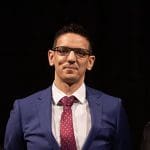
M. Muhannad Ayyash · Jun 14, 2023
Open-source intelligence is changing the way information is shared across the world. While increasingly credited as a means to expose war crimes and human rights violations, it is also being used as a tool for entrenching state oppression. In this policy brief, US Policy Fellow Tariq Kenney-Shawa examines the revolutionizing technology and offers recommendations for how to harness it for Palestinian liberation.

Tariq Kenney-Shawa· May 9, 2023
In October 2022, PA President Mahmoud Abbas issued a decree ordering the establishment of the Supreme Council of Judicial Bodies and Authorities that he would head. Through this and other decrees, Abbas and the ruling elite entrench the domination of the executive authority over the judiciary. Al-Shabaka policy analyst Dana Farraj examines these decrees and offers recommendations for confronting them.

Dana Farraj· Apr 19, 2023
Media & Outreach
Join analysts, Tariq Kenney-Shawa from the Palestinian think-tank Al-Shabaka and Rowena Razak, historical consultant, as they unpack the shift in sentiment on Gaza and Israel’s recent attacks on Tehran.

Tariq Kenney-Shawa· Jun 15, 2025
"Today, while Palestinian CSOs explore ways to survive and face and confront the causes and impacts of the shrinking space at the practical, strategic, political and ethical levels, the time is ripe for the declaration of a Gaza Covenant/Charter/Manifesto to be led by the Palestinian civil society." - Alaa Tartir

Alaa Tartir· Jun 12, 2025
The Madleen sent a strong message that the struggle to stop Israeli crimes continues.

Yara Hawari· Jun 9, 2025
We’re building a network for liberation.
As the only global Palestinian think tank, we’re working hard to respond to rapid developments affecting Palestinians, while remaining committed to shedding light on issues that may otherwise be overlooked.





